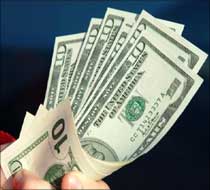 | « Back to article | Print this article |
 Indonesia is seeking European investors for $9 billion worth of water, road, air and seaport projects in what will be a litmus test of Southeast Asian countries' ability to seize on ripe financial conditions to upgrade decrepit infrastructure.
Indonesia is seeking European investors for $9 billion worth of water, road, air and seaport projects in what will be a litmus test of Southeast Asian countries' ability to seize on ripe financial conditions to upgrade decrepit infrastructure.
Easy global liquidity and investors' eagerness to tap one of the world's few fast-growing regions should create a sweet spot for the region to fill the $600 billion in infrastructure needs the Asian Development Bank identifies over the next decade.
But infrastructure experts say a shortage of projects offering compelling returns, coupled with stifling bureaucracy and regulatory uncertainty, threatens to undermine the ambitious plans of Indonesia, Thailand and the Philippines.
"There's a lot of money floating around but it's money looking for a return," said Bert Hofman, the World Bank chief economist for East Asia and the Pacific.
After years of chronic underspending, governments in the region of 600 million people have begun to sharply raise their infrastructure budgets to improve transport and energy networks.
Indonesia, the biggest regional economy, estimates it alone needs $150 billion worth of new infrastructure, but is only willing to finance 15 percent and has seen few takers so far for the public-private partnerships it is relying on.
Jakarta hopes that will change after a roadshow to Europe this year to market 16 projects from water treatment to ports.
"We're market-sounding," Chatib Basri, chief of the country's investment board, told Reuters. Speaking in Jakarta after a trip to Paris to meet potential investors, Basri said he saw demand coming from France and Germany.
The projects include water and waste treatment plants in the country's most populous Java island, a sector that could be of interest to firms such as France's Veolia Environment, the world's largest private supplier of drinking water, or German industrial giant Siemens.
The projects also include an airport in Java and seaports, in an archipelago of 17,000 islands where an inadequate transport network means high logistics costs.
CHEAP MONEY, ROBUST GROWTH
Having fixed their public finances following a regional financial crisis in the late 1990s, Southeast Asian governments can borrow more cheaply than ever, while local conglomerates and banks are cash-rich on the back of robust economic growth.
A rapidly growing middle class is pressuring politicians to ease nightmarish traffic conditions in "mega-cities" such as Jakarta and Manila, while the massive plane orders being placed by low-cost airlines AirAsia and Lion Air attest to the dramatic growth in regional air travel.
This month, Thailand's cabinet approved a plan to borrow $68 billion to build rail, roads and water plants by 2020.
That came days after the operator of Bangkok's SkyTrain, BTS Group Holdings Pcl, said it would raise up to $2.1 billion by listing an infrastructure fund in what could be Thailand's biggest IPO.
Indonesia and the Philippines, far-flung archipelagos with a combined population of 340 million, have passed laws to improve cooperation with the private sector to solve their bottlenecks.
ATTRACTING FUNDS
But
